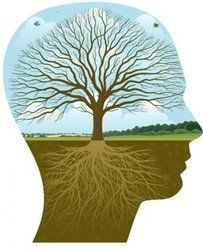Psychodynamic Therapy
Psychodynamic therapy is a therapeutic approach that draws on childhood/past experiences and unconscious conflicts to interpret client's present situation and specific problems. It explores patterns of functions and behaviours and helps clients identify helpful and unhelpful ways of living. Psychodynamic therapy is underpinned by the assumption that psychological problems are products of unconscious maladaptive functioning processes. The maladaptation develops early in life and eventually causes difficulties in day-to-day life. Psychodynamic therapies focus on revealing and resolving these unconscious conflicts that are driving their symptoms.
Common techniques used by psychodynamic therapists include:
- free association,
- dream interpretation,
- recognizing resistance and transference,
- working through painful memories and difficult issues,
- building a strong therapeutic alliance,
- identifying patterns of behaviours or life occurrences .
The therapeutic relationship between therapist and client is viewed as fundamental to understanding and working through the relational difficulties which the client has suffered in life. It is believed that clients often reenact their relational patterns in therapy, consequently, therapists can draw insight on how clients relate in therapy.
Psychodynamic Therapy, therefore,
- emphasizes the centrality of intrapsychic and unconscious conflicts, and their relation to development
- Identifies defenses as developing in internal psychic structures in order to avoid unpleasant consequences of conflict
- believes that psychopathology develops especially from early childhood experiences
- believes that internal representations of experiences are organized around interpersonal relations
- offers that life issues and dynamics will re-emerge in the context of the client-therapist relationship as transference and counter-transference
When It's Used
Psychodynamic therapy is primarily used to manage serious, deep-rooted psychological disorders e.g. clients
- who have lost meaning in their lives
- have difficulty forming or maintaining personal relationships.
- with addiction, social anxiety disorder, and eating disorders.
What to Expect
Clients are encouraged to speak freely about anything that comes to mind, including current issues, fears, desires, dreams and fantasies. The goal is to experience a remission of symptoms but also derive such benefits as increased self-esteem, better use of their own talents and abilities, and an improved capacity for developing and maintaining more satisfying relationships. The client may experience ongoing improvements after therapy has ended.






